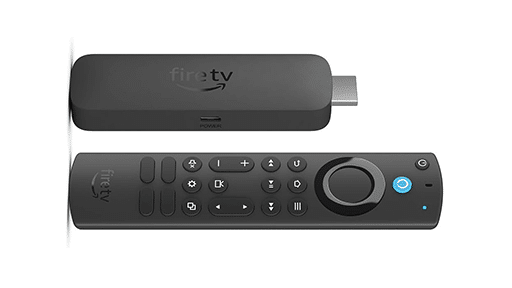
Editorial: By blocking the Microsoft Acquisition on the grounds of “Protecting Cloud Gaming”, the CMA is doing more harm than good for the cloud gaming space. Let me explain…
Everyone here at Cloud Dosage shares a passion for one thing: cloud gaming. It is the raison d’etre for this site! But, we also all realize that Cloud Gaming is still in a nascent state. It represents something on the order of 1% of current gaming cycles.
While the most successful services like GeForce NOW tout over 20 million users; they also admit to being streamed only a few hundred million hours a year – i.e. only ~10-15 hours (over an entire year) on average! The median user has probably put in just a few hours on the service.
So, it is with some excitement that we are witnessing cloud gaming taking center stage in a major gaming news story today. It is exciting (and a little bit of an I told you so moment) to see cloud gaming getting the attention it deserves! But for myself, at least, the circumstances also come with a sense of befuddlement. I’m thinking to myself: what cloud gaming needs most of all is … investment! games! fully-baked platforms! … Not major roadblocks!
It is truly puzzling to me that the UK Competition and Markets Authority (CMA) has chosen to block a $69 billion deal because of a ~1% market! While I’d love to see cloud gaming grow to the size of console and mobile gaming (and certainly think it has that potential), it’s hard to see why the CMA would ignore the clear existing lack of competition in those currently much bigger markets – where Sony, Nintendo, Apple and Google have a stranglehold – in order to protect a speculative technology.
Secondly, one thing that is always true about areas of emerging technology is that outcomes are notoriously hard to predict! Efforts to “protect” competition can easily have unforeseen consequences that result in accomplishing the opposite.
For example, if the CMA believes exclusive content is going to be the key to success in the cloud gaming market, it should perhaps be more concerned about the imminent takeover of the space by Sony and Nintendo. The CMA could be essentially handing these two a pathway to dominant the space even if those two corporations haven’t shown much interest up to this point.
And, that’s a crucial part of my point, Microsoft has a higher market share in cloud gaming not because its been doing anything nefarious in the space but because those two dominant players haven’t even bothered to really enter the space yet! We shouldn’t punish Microsoft just for being a first mover!
There may be many legitimate reasons to block the Microsoft-Activision deal. But, as a cloud gaming enthusiast, this doesn’t feel like one of them.
When is Regulation Not Regulation
One truly strange aspect about the ruling is that the CMA seems to be trying to cast what constitutes a massive bit of government regulation as a way to reduce regulation?!?
Preventing the merger would effectively allow market forces to continue to operate and shape the development of cloud gaming without this regulatory intervention.
So … “by regulating we are actually not regulating.” OK. Gotcha!
What about GeForce NOW and Boosteroid?

Seemingly in order to placate the CMA’s concern over the health of the cloud gaming ecosystem, Microsoft committed to bringing it’s catalog of PC games (including those from the Activision acquisition) to rival cloud gaming services GeForce NOW and Boosteroid. Something that got all of us very excited here at CD!
But, the CMA has determined this isn’t good enough because (in their words):
- (Microsoft) did not sufficiently cover different cloud gaming service business models, including multigame subscription services.
- (Microsoft) was not sufficiently open to providers who might wish to offer versions of games on PC operating systems other than Windows
- (Microsoft) would standardise the terms and conditions on which games are available, as opposed to them being determined by the dynamism and creativity of competition in the market, as would be expected in the absence of the merger.
Let’s look at these bullet points
The first bullet is basically a demand for Activision games to also be offered to cloud game subscriptions – the only real players in town other than Game Pass itself being Blacknut, Utomik and Luna+. If cloud gaming represents 1% of gaming cycles at the moment, these services, for better or worse, represent roughly the 1% of the 1%. All major publishers are still trying to figure out if these type services provide them fair value. Expecting Microsoft to commit to put their titles on a service like Luna+ – when Amazon itself isn’t willing to put its own titles on the service (*cough* New World) – is too much!
We believe that under Microsoft’s current licensing terms, Luna may offer an Xbox channel on Luna similar to its Ubisoft+ channel however. We believe this would be satisfactory to Luna users.

Bullet two is largely intended to protect cloud providers who would choose to use Linux on the server side. While this, in principle, appeals to the Linux fan-boy in me, it’s a bit of a moot point. The Linux gaming community has clearly chosen the path of supporting Windows/DirectX games via WINE/Proton/vkd3d rather than pushing for direct Vulkan ports. It isn’t Microsoft that advocated for this path; it was Valve and Steam. So, Windows versions of games ARE what Linux users (or Linux based cloud gaming services) generally want now anyway…
The third bullet appears to just be a statement that Microsoft will want to agree to the terms of agreements they make – and to treat different partners equally and fairly. It’s not clear how blocking this acquisition changes how deals are made.
The Take Away
I can’t help thinking that the message Microsoft will take away from this is that they shouldn’t invest in speculative/innovative parts of the gaming market anymore. Because apparently any success in such spaces (no matter how small or early) will be held against them!
I think it wouldn’t be totally unreasonable for Microsoft to respond by completely abandoning their cloud endeavors altogether in order to keep this deal and what it brings them in markets that have more predictable value – console and mobile gaming.
Such a decision could irrevocably flounder the nascent cloud gaming ecosystem.
If you truly care about the cloud gaming space, you should be incubating it. You should be encouraging anyone and everyone to invest as much as they can in the space to help it grow! You should be encouraging those who were brave enough to jump in early to double down!
What we absolutely, positively, definitely don’t want is for investments in cloud gaming to become a liability!








Great pints we’ll made. Microsoft have very clearly been offering the games they would own to other platforms in a bit to show fairness. If they had made similar deals with luna and (shouldnit still exist) stadia, would CMA be happy?
Well Written, thanks for sharing your thoughts., I hope we can see Cloud gaming expand, but there seems to be a lot of forces stopping it.,
good write up. I agree the “reasons” the CMA has provided are ignorant. Microsoft might be the only major company that is making active investments in cloud gaming. I like your point about them being punished for being early. I absolutely agree with that.